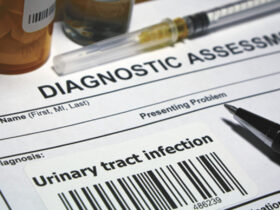 The incidence of community-acquired pressure ulcers appears to been on the rise. The development of pressure ulcers is multifactorial, but one study suggests that compromised nutritional status is the single strongest predictor of pressure ulcer development and of pressure ulcer severity among patients receiving home health. The authors suggest that the strength of nutrition in their analyses was based on the good availability of physical therapy and pressure-relieving devices compared to the relative lack of nutritional intervention. Among older adults, the prevalence of malnutrition ranges from 17% to 65% – depending on the group and setting. Patients from rehab facilities, long-term care residents, and elderly patients requiring a higher level of care make up the upper end of that range. The prevalence of malnutrition among older patients presents a particular concern for doctors and care planners, because malnutrition has been connected with increased re-hospitalization, increased length of stay with inpatient care settings, falls, hip fractures, depression, poor quality of life, and increased mortality.
The incidence of community-acquired pressure ulcers appears to been on the rise. The development of pressure ulcers is multifactorial, but one study suggests that compromised nutritional status is the single strongest predictor of pressure ulcer development and of pressure ulcer severity among patients receiving home health. The authors suggest that the strength of nutrition in their analyses was based on the good availability of physical therapy and pressure-relieving devices compared to the relative lack of nutritional intervention. Among older adults, the prevalence of malnutrition ranges from 17% to 65% – depending on the group and setting. Patients from rehab facilities, long-term care residents, and elderly patients requiring a higher level of care make up the upper end of that range. The prevalence of malnutrition among older patients presents a particular concern for doctors and care planners, because malnutrition has been connected with increased re-hospitalization, increased length of stay with inpatient care settings, falls, hip fractures, depression, poor quality of life, and increased mortality.
Studies demonstrate that improving nutritional status in older adults is possible, but only with intensive training that should usually involve family caretakers. Malnutrition among community-dwelling, elderly patients proves hard to treat because it tends to stem from geriatric decline in physical and cognitive function. The increasing effort required for normal home tasks contributes to over-reliance on convenience foods while cognitive decline hampers meal planning. One solution is long-term home care, especially long-term home care that combines aide support with as-needed skilled nursing. While adhering to a nutritional or therapeutic diet falls within a home care aide’s services, nutritional training exceeds the aide’s scope of practice. Home care’s model of repeated home visits fits the examples of successful nutritional training in the research. Then aides, who visit more often, can assist with meal planning and preparation. Aides can report non-adherence to the nurse care planner. With McKenney Home Care, aides can even do the grocery shopping for clients.
If you have a friend or loved one at risk of pressure ulcers, McKenney Home Care can assist with nutrition and more:
• Nutrition
• Skin care – especially assistance with moisturizing
• Bathing
• Routine Observation of Skin Condition: McKenney Home Care aides are trained to recognize stage 1 pressure ulcers.
When ulcers form, they can notify family and physicians in a timely fashion and trigger a response to prevent ulcer progression.
• Ambulation and transfer assistance to keep patients active and reduce pressure on problem areas
• Incontinence management
• Repositioning for bed-bound patients
• Assistance with implementation of pressure-reducing devices
If you have a patient, friend or loved one with pressure ulcers, please consider an evaluation for home care needs. Signs of a need for home care include slow gait, slow transfers, malnutrition, dehydration, family caregivers complaining of no support, cognitive decline, and more.
McKenney Home Care in Naples, FL hosts a Lewy Body Dementia Support Group the first Wednesday of every month in Naples. This is an ongoing support group approved by the Lewy Body Dementia Association in Atlanta in affiliation with the Parkinson’s Association of SWFL and the Alzheimer’s Support Network.
McKenney Home Care provides exceptional in-home health services and client-centered care. With a passion for maximizing the quality of life of their clients and families, they are driven to ensure social engagement and specialty services during all stages of life.
For individuals with neurodegenerative disorders, McKenney Home Care delivers enriched specialized training for its caregivers working with Dementia Patients. In addition to specialized videos and manuals, McKenney educates the caregivers through the use of a Virtual Alzheimer’s App. This virtual reality experience helps caregivers understand the feelings and experiences of those suffering from Alzheimer’s and other forms of Dementia.
If you or someone you know would like more information about McKenney Home Care or the LBD Support Group, please call McKenney Home Care at 239-325-2273 or visit mckenneyhomecare.com
CALL US TODAY!
239-325-CARE (2273)
9655 Tamiami Trail North #201
Naples, FL 34108





